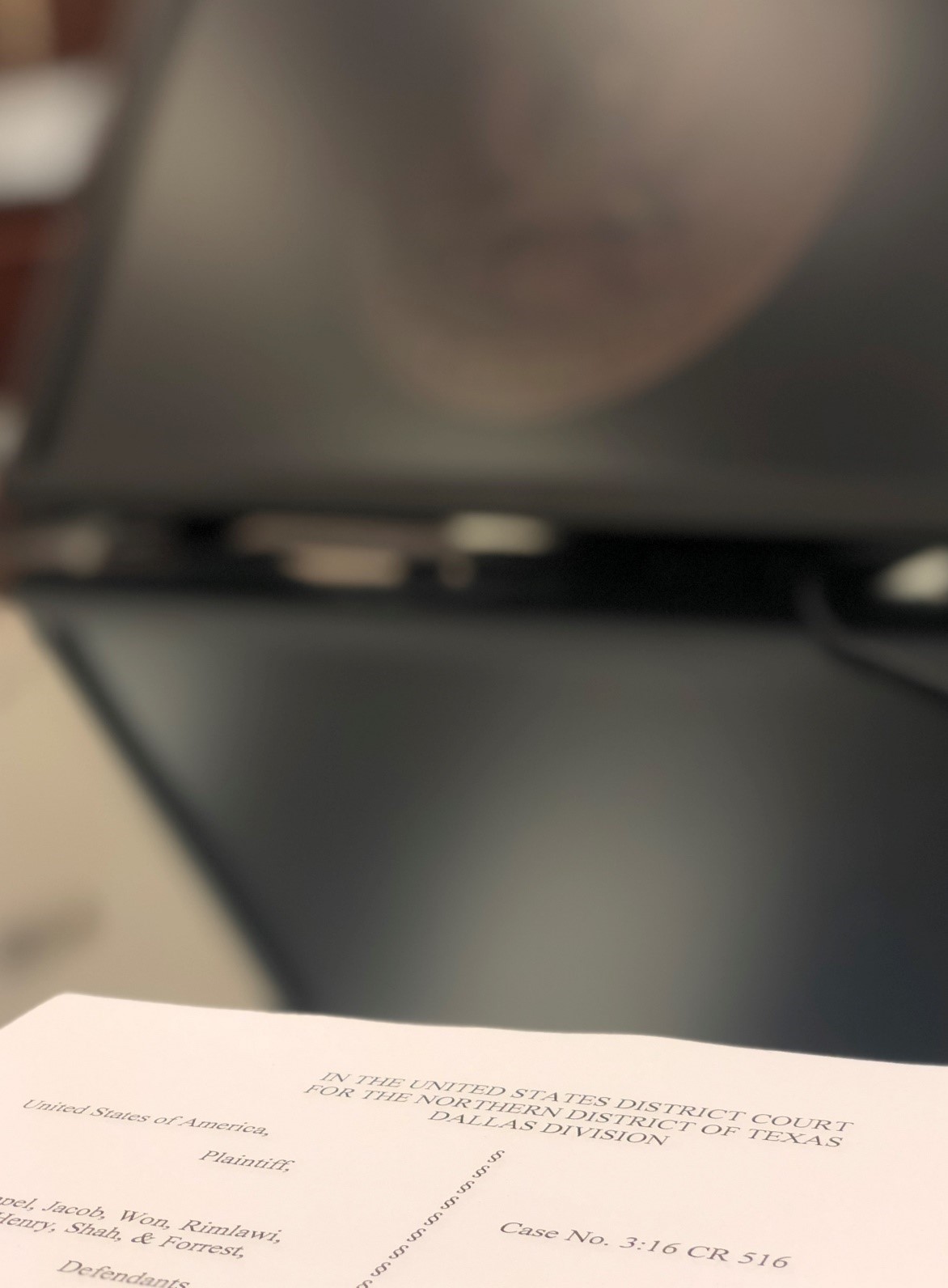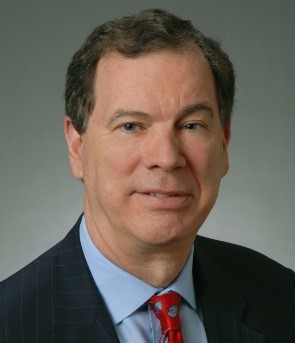
When approached by a client under federal investigation, criminal defense attorneys face one central question: Cooperate from the start, or stand and fight to the end?
The U.S. Attorney’s Office for the Northern District of Texas has recently updated its standard proffer agreements to reflect nationwide practices, which may now force the answer to this question – proffer at your peril.
Depending on the circumstances, an individual under criminal investigation might agree to an interview with the government in an effort to avoid charges or strike a favorable plea deal.
Typically, defense lawyers will negotiate a proffer agreement (sometimes called a “queen-for-the-day” agreement) with the prosecutor outlining the terms of the meeting. In the usual proffer agreement, the government would agree not to use any of the individual’s statements made during the proffer at trial, unless it brought a separate case for false statement or a similar crime. For example, proffer agreements the Northern District issued in 2004 typically contained the following language:
[I]n the event of any prosecution that may be brought against your client by this Office, the government will not offer in evidence or in connection with any sentencing proceeding for the purpose of determining an appropriate sentence, any statement made, or self-incriminating information provided by your client at the meetings with the government; and
[] Notwithstanding [the] paragraph [] above, the government reserves the right to use any statements or information provided by your client in any prosecution for false statements, obstruction of justice or perjury.
Defendants would also be afforded the protections of Federal Rule of Evidence 410 and Federal Rule of Criminal Procedure 11(f). Together, these rules prohibit the admission of evidence of a guilty or no contest plea, including any statements made during the negotiation of either, against a defendant. Thus, individuals and their attorneys rested easy knowing that, as long as the client told the truth, they could agree to an interview with the government.

As the popularity and litigation of proffers grew, however, agreements across the country began including exceptions to permit use of an individual’s proffer statements to develop leads for new evidence and to impeach a defendant at trial. The version of the Northern District’s proffer agreements in 2007 reflected this nationwide development, reading:
First, no statements made by your client or other information provided by your client during the proffer will be used against your client in any criminal case, except in the event of the following: (1) a prosecution for false statement or perjury arising out of the proffer; and (2) prosecution for serious physical injury to or death of another person.
Second, the government may make derivative use of, and may pursue any investigative leads suggested by, any statements made by or other information provided by your client during the proffer….
Third, in the event your client is a witness at any judicial proceeding arising out of or relating to this matter and offers testimony materially different from any statements made or other information provided during the proffer, the attorney for the government may cross-examine your client concerning any statements made by or other information provided by your client during the proffer session.
While the language from proffer agreements circa 2007 was more expansive, it nevertheless gave individuals and their attorneys some measure of comfort. As long as the client told the truth, they could agree to an interview with the government. If, despite the interview, charges were ultimately brought, there was still a safety valve – the defendant could avoid the use of any statements made at the proffer by not testifying at trial.
Proffer agreements the Northern District has issued recently go one step further, which may chill any defendant’s desire to agree to a government interview.

Not only do the updated proffer agreements include exceptions similar to those above for violent criminal activity, derivative investigative leads, prosecution for false-statement-related crimes and rebuttal purposes at sentencing, but the agreements also contain a catch-all clause permitting use of proffer statements for all purposes. Meaning, in addition to any substantive trial on the matter, the government may also use any information learned during a proffer session in other proceedings – such as federal grand jury proceedings, applications for complaints, arrest warrants, search warrants, applications for electronic and wire interceptions, pretrial hearings, bail and detention hearings, appeals and civil cases, including civil asset forfeiture.
Specifically, the Northern District has recently made it standard practice to include a distinct provision in its proffer agreements:
If at any stage of any trial or other proceeding, your client or anyone on his behalf offers or elicits evidence, assertions, representations, or arguments that are inconsistent with information supplied by you or your client during the proffer meeting, this Office may use proffer information to rebut or refute the inconsistent information through impeachment, cross-examination, introduction of the proffer information as evidence, and/or through argument….
Your client agrees that Federal Rule of Evidence 410 and Federal Rule of Criminal Procedure 11(f) do not govern information provided at the proffer meeting and waives any argument to the contrary.
When these newly worded agreements began circulating as early as 2013, local attorneys were not certain the prosecutors in the Northern District of Texas would actually make use of this exception in practice.
Prosecutors have proven that they will. To the frustration of the local criminal defense bar, prosecutors in the Northern District of Texas have sought to enforce this provision by using criminal defendants’ proffer statements in the government’s case-in-chief.
The enforcement of the new language in these proffer agreements is novel to the region and raises questions about their legality.
The debilitating impact of enforcing these agreements weighs heavily against permitting their enforcement. Given the broad language in these agreements, a defendant who admits guilt to any degree during a proffer, but then presents affirmative evidence at trial, will always open the door for the government to seek to admit proffer statements – effectively muzzling a defendant at trial.

The new language, however, goes one step further by binding both the defendant and her attorney. Put simply, the government can argue that a defendant’s attorney has breached the proffer agreement by asking questions of witnesses, introducing exhibits or even through statements made during opening. These proffer agreements, then, are tantamount to waivers of the Fifth Amendment right against self-incrimination and the Sixth Amendment rights to a meaningful defense and to effective assistance of counsel at trial, because not only is the defendant muzzled, but so too is her lawyer.
On the other hand, proponents of these agreements counter that the waivers do not completely preclude a substantive defense at trial. Rather, they permit the government to rebut a defendant’s claims at trial with her prior inconsistent statements. Defendants and their counsel, further, can still present a meaningful defense without violating their proffer agreements by challenging the credibility, weight and sufficiency of the government’s witnesses and evidence. Supporters also note that defendants enter into such agreements voluntarily, thus waiving any challenge to them.
Of course, these arguments assume that no power differential exists between the government and criminal defendants, such that they may fairly bargain.
Because they effectively foreclose a substantive defense, these agreements also raise the question of whether defendants can ever waive their right to present a full defense and enter into such an agreement knowingly, intelligently and voluntarily in the first place. After all, the only other context in which criminal law permits this bargain is where the exchange is dispositive – for immunity or a plea.
From a practical standpoint, these newly revised agreements are also likely to have a chilling effect on cooperation with the government because of the Catch-22 they force defendants into: proffer and effectively waive their right to a substantive defense in hopes that the government will not pursue a case against them, or refuse to speak to the government at all and likewise hope that the government will not pursue a case against them.
To be sure, proponents of these agreements can articulate a similar policy concern that the government may stop permitting proffers if they are unable to later use the defendant’s inconsistent statements at trial.
This argument, however, is bellied by the fact that the previous agreements already incentivized defendants to be truthful – by authorizing prosecution for a false-statement-related crime. Those proffer agreements functioned without this new provision for decades and did not result in systematic material omissions to prosecutors or a collapse of the truth-seeking function in the criminal justice system. Indeed, in considering Rule 410 and Rule 11, Congress contemplated, and ultimately rejected, proposals that would have permitted use of statements in connection with offers to plead guilty.
Thought experiments aside, a review of relevant controlling precedent for the Northern District shows that the enforceability of these revised agreements is an open question but that case law appears to be trending in the government’s favor.
The U.S. Supreme Court, as a threshold matter, has not yet decided if a criminal defendant’s statements during a proffer are later admissible in the government’s case-in-chief. The closest the Court has come was United States v. Mezzanatto in 1995. The seven-justice majority in Mezzanatto held that – if done knowingly and voluntarily – a criminal defendant can waive the protections of Federal Rule of Evidence 410, thereby making statements made during plea negotiations admissible at trial for impeachment purposes.
The fractured nature of Mezzanatto, however, has drawn much attention. In total, five justices raised doubts as to whether a defendant’s plea statements could ever be admissible in the government’s case-in-chief.
In their concurrence, Justices Ginsburg, O’Connor and Breyer expressed concerns about the chilling effect admitting plea statements in the government’s case-in-chief could have on criminal defendants’ cooperation.
Two justices, on the other hand, disavowed the admissibility of plea statements in their entirety. Even expressing a desire to negotiate a guilty plea, Justices Souter and Stevens dissented, would become damning evidence against a defendant who grants such a waiver.
Although the Fifth Circuit has come close, it has not ruled directly on the admissibility of a defendant’s proffer statements in the government’s case-in-chief. Nevertheless, in opinions as recent as 2017, the Circuit Court has demonstrated the direction of its breach of proffer doctrine – in favor of the government.
On a local level, the issue of breaching a proffer agreement arose in the recent trial involving individuals associated with Forest Park Medical Center, United States v. Beauchamp, in the Northern District of Texas.
One of the Defendants, while represented by prior counsel, agreed to an extended interview with prosecutors and the FBI. The government contended that the defendant confessed during the proffer, which defense counsel vehemently denied.
Both prior to and during trial, the prosecutors argued the defendant “breached his proffer” by virtue of the arguments his trial counsel raised, including questions asked on cross-examination. Under the government’s theory, because the defendant in question confessed, any defense of actual innocence was a material breach of the proffer agreement. In doing so, the prosecutors effectively tied defense counsels’ hands behind their backs and precluded any substantive defense.
In the middle of the trial, defense counsel showed a document to the jury that contained the defendant’s signature during cross-examination of a former hospital employee. Immediately, the government moved the Court to find a breach of the proffer agreement and admit the defendant’s statements, as recorded by the government agent present during the interview.
While the government asked the Court to permit testimony by the agent, the Court settled on a middle ground – reading a single sentence from the agent’s notes that could be interpreted as a confession of guilt:
“Defendant Mac Burt made statements in June 2016 to Casey England, an agent with the Office of Inspector General, during a voluntary interview where he was represented by legal counsel. The interview, consistent with DOJ policy, was not taped. The agent’s notes include a statement by Burt that he realized from the very beginning that the $600,000 check Beauchamp requested from Forest Park to be paid to Adelaide was for doctor kickbacks. You may consider this evidence as to Defendant Burt.”
Given that the notes of the proffer session were created by a government agent, the Court’s decision to read the agent’s notes as written begs the obvious question – did the defendant proffering actually make the statements, or did the memorandum of interview reflect the agent’s (perhaps loose) interpretation of those statements?
When faced with this conundrum, a defendant essentially has two choices at trial: (1) lean-in to the proffer breach and vehemently deny that any such statements were made; or (2) walk a tightrope, hoping and praying that the government does not view your defense strategy as a breach of the proffer. Neither option is desirable, but they must be determined on a case-by-case basis.
The U.S. Attorney’s Office for the Northern District of Texas is moving full steam ahead with their new proffer agreement policy, and the Fifth Circuit seems poised to rule that proffer statements are admissible in the government’s case-in-chief.
Only one strategy for defense attorneys is clear then – proffer at your peril.
Editor’s note: While an earlier version of this article stated that the proffer language discussed in this article began circulating as early as 2016, the U.S. Attorney’s Office for the Northern District of Texas clarified that it used this language on occasion as early as 2013.
Paul E. Coggins, Kelly R. Vickers, and Mario H. Nguyen are all attorneys in the white collar crime and investigations practice at Locke Lord LLP’s Dallas Office. The authors of this article represented a defendant in the Forest Park Medical Center trial, but did not represent the defendant with the proffer agreement issue.
